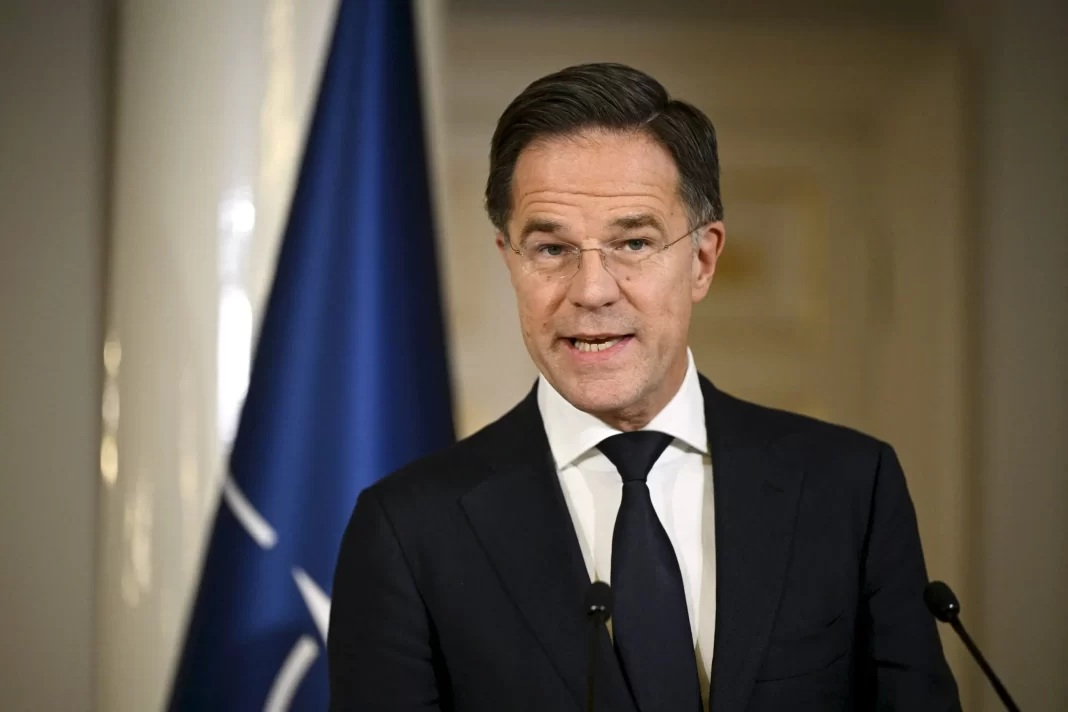Pressure to Increase Defense Spending
NATO is under renewed scrutiny following U.S. President Donald Trump’s sharp demands for increased defense contributions from European allies. Trump’s call for fairer burden-sharing has reignited debates on financial commitments, particularly as tensions with Russia escalate.
Trump has long criticized European nations for underfunding defense while relying heavily on U.S. military support. His administration has warned that continued shortfalls in defense budgets could jeopardise alliance’s collective security, especially in the face of an increasingly aggressive Russia.
NATO’s Defense Spending Target: A Persistent Challenge
The alliance has set a target for each member nation to spend at least 2% of their GDP on defense. However, many European nations, including the Netherlands and Belgium, have consistently fallen short of this benchmark.
NATO Secretary-General Mark Rutte, formerly the Dutch Prime Minister, acknowledged these shortcomings during discussions at the World Economic Forum in Davos. He admitted that while progress has been made, the current spending levels are still insufficient to ensure long-term security. NATO’s collective ability to defend itself in future conflicts could be at risk if the 2% target is not met and exceeded in the coming years.
Ukraine’s Push for NATO Membership
Ukraine has been advocating for NATO membership as it continues to face Russian aggression. However, some members argue that existing members need to fulfill their financial commitments before expanding the alliance.
Trump’s allies have echoed this sentiment, stressing that the U.S. cannot continue to bear the majority of NATO’s financial burden. They have also pointed out that admitting new members like Ukraine could further strain the alliance’s resources.
Ukraine’s President Volodymyr Zelenskyy has urged Europe to take greater responsibility for its security. He emphasized the need for Europe to strengthen its defense capabilities and reduce reliance on the U.S.
Rising Tensions with Russia
Russia’s actions under President Vladimir Putin have heightened the urgency for NATO to bolster its defenses. The ongoing conflict in Ukraine and the potential threat to NATO member states have underscored the need for greater military readiness.
Putin’s belligerence has also fueled fears of a broader conflict that could involve NATO directly. As a result, NATO’s leadership is calling for increased investment in defense to counter potential threats effectively.
Trump’s Tough Love for this alliance
Trump’s tough stance on NATO spending has sparked controversy but also led to tangible results. Defense budgets among European allies have increased in recent years, partly due to Trump’s persistent demands.
However, his approach has also raised concerns about unity within the alliance. Trump has previously suggested drastic measures, including pulling the U.S. out of NATO or even encouraging punitive actions against non-compliant members. Such statements have drawn criticism from some European leaders, who argue that internal divisions could weaken ability to address external threats.
Calls for Unity Amid Growing Challenges
Despite the debates over defense spending, leaders agree on the importance of unity in the face of external threats. Belgian Prime Minister Alexander De Croo has emphasised the need to focus on the true adversary—Russia—rather than engaging in internal disputes.
The collective defense strategy relies on solidarity among its members. As the alliance navigates these challenges, maintaining unity will be crucial for its effectiveness and credibility.
The Path Forward for NATO
The discussions at Davos have highlighted the pressing need for the alliance to adapt to evolving security challenges. Increased defense spending, greater accountability, and a united front against common adversaries are essential for the alliance’s future.
Trump’s demands may be seen as harsh, but they have spurred critical conversations about NATO’s role in a changing world. The alliance now faces the dual challenge of strengthening its capabilities while preserving its cohesion.
A Call to Action
NATO stands at a crossroads, with its members facing tough decisions about defense spending and strategic priorities. As Russia’s aggression looms large, the alliance must act decisively to ensure its readiness and resilience.
Trump’s push for accountability has added urgency to these efforts. Whether the alliance can rise to the challenge and maintain its unity will determine its ability to safeguard peace and security in an increasingly uncertain world.

